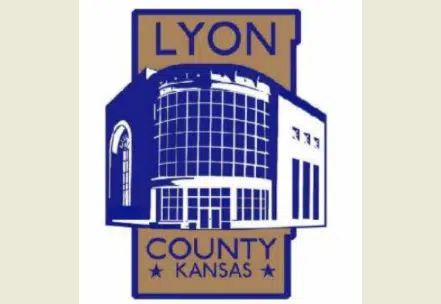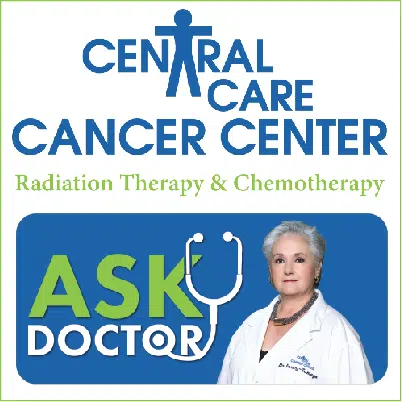The Lyon County Planning and Appeals Board has two items on the agenda for its monthly meeting Wednesday.
Board members will consider several changes to the county’s zoning text when it comes to hospitals — starting with a designation change from hospitals to licensed medical facilities. Other text changes include additions for applicability, site plans and provided services; as well as additions defining different facilities including but not limited to general hospital, ambulatory surgical center, community hospital facility, Critical Access hospital, independent diagnostic testing facility and Rural Emergency hospital.
The Lyon County Commission is listed as the applicant. The zoning text request has been on pause for months after Stormont Vail Health told Newman Regional Health administrators of its plans to build a now $44 million medical facility in Emporia. Newman Regional countered with a list of proposed zoning code text changes through the Metropolitan Area Planning Commission, designed to give more local oversight to external hospital operations seeking to bring services to Emporia while protecting its financial health. Neither the Planning Commission nor Emporia City Commission took action on that package.
The Planning Board conversation also follows the City Commission’s vote to approve Stormont’s annexation request for land near Roads 180 and G for that medical facility last month.
Before that conversation, board members will discuss Danielle Cottman’s request for a conditional use permit at 1027 Road 70. Cottman is seeking a permit for an event space after renovating a building for that purpose.
The meeting starts at 7 pm at the Lyon County Courthouse Annex.
Licensed Medical Facilities Text Changes
2.5 Permitted Uses.
Late-night entertainment, nightclub bar, cocktail lounge, brewpub, craft brewery, microdistillery (*provided that it is not located within 200 feet of a dedicated place of worship, school, or hospital Licensed Medical Facilities)
Fire station, police station
Hospital
Medical Practitioner, health counseling
Adding The Following Text
7.20 Licensed Medical Facilities (LMF)
7.20.1 Applicability. Any new LMFs, such as General Hospitals, Special Hospitals, Critical Access Hospitals, Rural Emergency Hospitals, Ambulatory Surgical Centers, Independent Diagnostic Testing Facilities, Recuperation Centers, Medical Practitioners, and Community Hospital Facilities. (As defined in Section 10. Definitions) Any change in the nature of the health care services provided in any existing structure or LMF.
7.20.2 In addition to the factors outlined in Section 8.8.3.a.8 and the procedures outlined in Section 8 (including Section 8.5), the following factors and criteria shall apply to any CUP for a LMF Per K.S.A. 12-741, as amended, the LCPAB and Governing Body have determined that the following analyses and considerations are necessary and reasonable for the protection of the public health, safety, and welfare.
7.20.3 Plans. A site plan, project plan, or development plan shall be required, which plan shall also include a floor plan illustrating the layout of all rooms and space within the structure or structures on the property, including existing structures and any proposed alterations, including an identification of the existing and proposed uses of each such room or space therein, and including specific identification of the nature and extent of any accommodations for the overnight stay of any patients of the LMF. Other plans/studies that may be required are Stormwater Management, Environmental, and Traffic.
7.20.4 Provided Services. If the application indicates that some or all of the proposed facility would constitute an LMF, the applicant shall also disclose:
a. The nature and extent of any such healthcare services to be provided, b. Including whether and to what extent any portion of the facility would constitute an LMF,
c. Information regarding the extent to which such services are already being provided through existing community hospital facilities in the greater City of Emporia and Lyon County communities and
d. Information regarding the extent to which the existing services are asserted as inadequate to serve the current or reasonably foreseeable future community needs.
7.20.5 Structures. Structures will be built to the most current International Building Code (IBC) available. A third party inspector will be provided and paid for by the applicant. This inspector will answer the County.
7.20.6 Exemptions. LMFs existing and in operation on July 1, 2024, shall not be required to obtain a CUP for any existing health care services provided therein.
Adding the following definitions
10.1 Licensed Medical Facility.
Ambulatory Surgical Center. An establishment that is not a community hospital facility, with an organized medical staff of one or more physicians; with permanent facilities that are equipped and operated primarily for the purpose of performing surgical procedures; with continuous physician services during surgical procedures and until the patient has recovered from the obvious effects of anesthetic and at all other times with physician services available whenever a patient is in the facility; with continuous registered professional nursing services whenever a patient is in the facility; and which does not provide services or other accommodations for patients to stay more than twenty-four (24) hours. Before discharge from an ambulatory surgical center, each patient shall be evaluated by a physician for proper anesthesia recovery. Nothing in this section shall be construed to require the office of a physician or physicians to be licensed under this act as an ambulatory surgical center. (State Law Reference: K.S.A. 65-425, as amended).
General Hospital. An establishment that is not a community hospital facility, with an organized medical staff of physicians; with permanent facilities that include inpatient beds and medical services, including physician services and continuous registered professional nursing services for not less than 24 hours every day to provide diagnosis and treatment for patients who have a variety of medical conditions. (State Law Reference: K.S.A. 65-425, as amended).
Community Hospital Facility. Any public institution, place, building, or agency that would otherwise include the services or features of a general hospital, special hospital, critical access hospital, rural emergency hospital, ambulatory surgical center, independent diagnostic testing facility, or recuperation center, and which is organized as a political subdivision or an instrumentality or agency of a city or county, and which, organizationally, (i) provides care and treatment for a broad range of medical conditions of different types, (ii) provides emergency room services, and (iii) provides a substantial amount of services on a free or reduced cost basis for those who do not have adequate insurance or other means to pay the normal charges for such services.
Critical Access Hospital. A member of a rural health network that is not a community hospital facility and: Makes available twenty-four (24) hour emergency care services; provides not more than twenty-five (25) acute care Inpatient beds or, in the case of a facility with an approved swing-bed agreement, a combined total of extended care and acute care beds that does not exceed twenty-five (25) beds; provides acute inpatient care for a period that does not exceed, on an annual average basis, ninety-six (96) hours per patient: and provides nursing services under the direction of a licensed professional nurse and continuous licensed professional nursing services for not less than twenty-four (24) hours of every day when any bed is occupied or the facility is open to provide services for patients unless an exemption is granted by the licensing agency pursuant to rules and regulations. The critical access hospital may provide any services otherwise required to be provided by a full-time, on-site dietician, pharmacist, laboratory technician, medical technologist, and radiological technologist on a part-time, off-site basis under written agreements or arrangements with one or more providers or suppliers recognized under Medicare. The critical access hospital may provide inpatient services by a physician assistant, advanced practice registered nurse or a clinical nurse specialist subject to the oversight of a physician who need not be present in the facility. In addition to the facility’s twenty-five (25) acute beds or swing beds, or both, the critical access hospital may have a psychiatric unit or a rehabilitation unit. 2 LMF_7.20_ss_111424 or both. Each unit shall not exceed ten (10) beds, and neither unit shall count toward the twenty-five (25)-bed limit or be subject to the average ninety-six (96)-hour length of stay restriction. (State Law Reference: K.S.A. 65-468, as amended).
Independent Diagnostic Testing Facility. A provider-based or independent facility in which diagnostic tests are performed that is independent of a hospital or physician’s office and which meets the standards or requirements of, or is licensed or regulated under, 42 CFR 410.33, as amended.
Recuperation Center. An establishment that is not a community hospital facility, with an organized medical staff of physicians, permanent facilities that include inpatient beds, medical services, including physician services, and continuous registered professional nursing services for not less than twenty-four (24) hours of every day to provide treatment for patients who require inpatient care but are not in an acute phase of illness, who currently require primary convalescent or restorative services and who have a variety of medical conditions. (State Law Reference: K.S.A. 65-425, as amended).
Rural Emergency Hospital. An establishment that is not a community hospital facility that (1) meets the eligibility requirements described in K.S.A. 65-484, as amended; (2) provides rural emergency hospital services (as defined in K.S.A. 65-484, as amended); (3) provides rural emergency hospital services in the facility 24 hours per day by maintaining an emergency department that is staffed 24 hours per day, seven (7) days per week, with a physician, nurse practitioner, clinical nurse specialist or physician assistant: ( 4) has a transfer agreement in effect with a level I or level II trauma center: and (5) meets such other requirements as the Kansas department of health and environment finds necessary in the interest of the health and safety of individuals who are provided rural emergency hospital services and to implement state licensure that satisfies requirements for reimbursement by federal healthcare programs as a rural emergency hospital. (State Law Reference: K.S.A. 65-484, as amended).
Special Hospital. An establishment that is not a community hospital facility, with an organized medical staff of physicians with permanent facilities that include inpatient beds, and with medical services, including physician services, and continuous registered professional nursing services for not less than 24 hours of every day, to provide diagnosis and treatment for patients who have specified medical conditions. (State Law Reference: K.S.A. 65-425, as amended).
Medical Practitioner. A medical practitioner is a healthcare provider who is authorized to practice by the state. Some examples of medical practitioners include but are not limited to Nurse practitioner (NP), Family nurse practitioner (FNP), Physician Assistant (PA), Doctor of medicine or osteopathy, Podiatrist, Dentist, Chiropractor, Clinical psychologist, Optometrist, Nurse-midwife, and Clinical social worker.






















